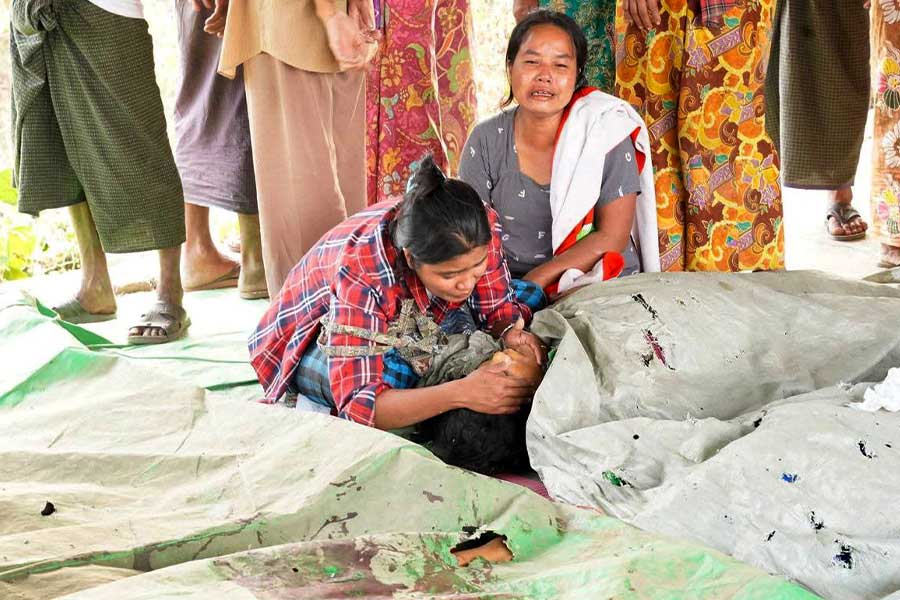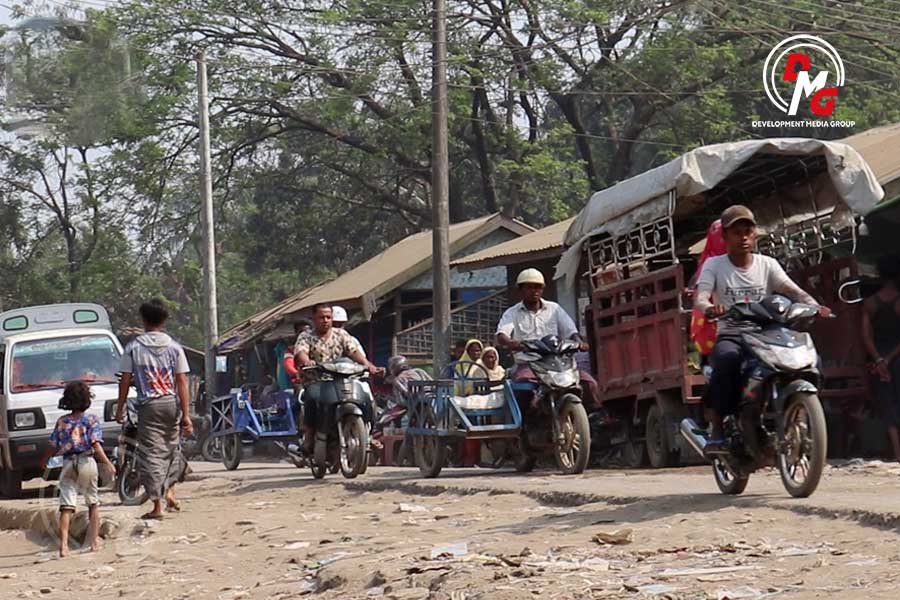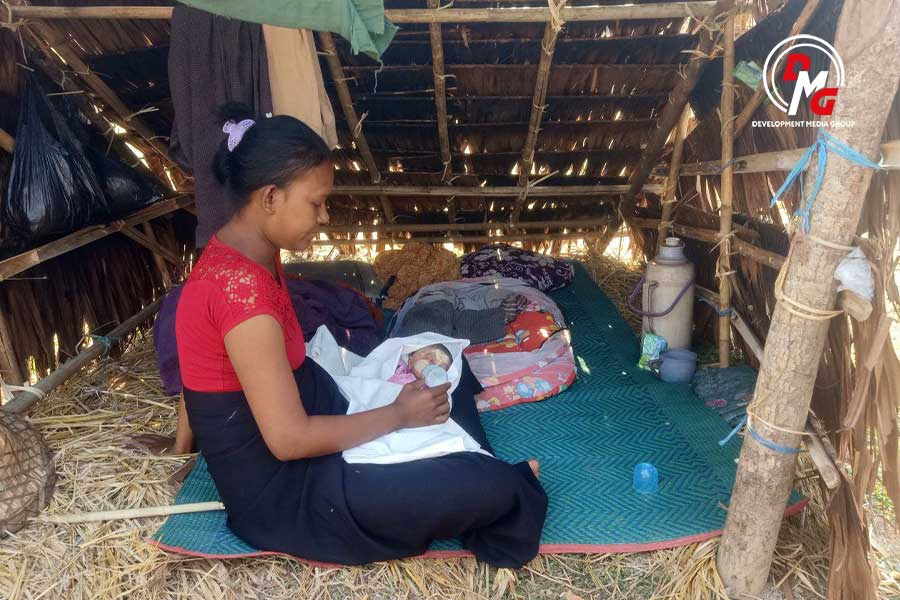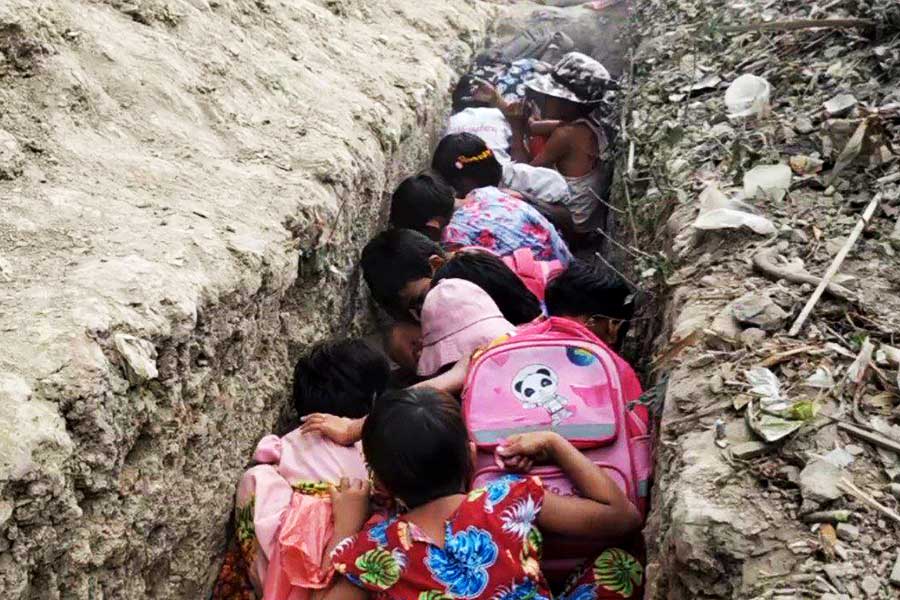- Arakan residents call for air raid warning systems amid surge in junta airstrikes
- Arakan’s Breathing Space (or) Mizoram–Arakan Trade and Business
- Death toll rises to 18 after junta airstrike on Ponnagyun village market
- Regime arrests dozens of Muslims in Sittwe over alleged Arakan Army links
- Over 200 IDPs in Ponnagyun struggle without shelter, food aid
Arakan migrants go without jobs for two months in Mongla
An Arakan worker in Mongla explained: “We still could work with remaining building materials after the border was closed. But they ran out nearly two months ago, leaving us with no job to do. We are struggling to make ends meet.”
29 Nov 2024

DMG Newsroom
29 November 2024, Mrauk-U
Thousands of Arakan migrants employed at construction sites in Shan State’s Mongla, bordering China, have been without a job for nearly two months after China closed the border, cutting off supplies of goods including fuel and construction materials.
An Arakan worker in Mongla explained: “We still could work with remaining building materials after the border was closed. But they ran out nearly two months ago, leaving us with no job to do. We are struggling to make ends meet.”
China has closed border crossings with territories controlled by the Myanmar National Democratic Alliance Army (MNDAA) including Chin Shwe Haw, Laukkai, Kyugok and Mone Koe, cutting off trade. Those towns were seized by the MNDAA during the first phase of Operation 1027, from approximately November of last year to January.
Another worker from Arakan said: “We can’t go back home because the roads are closed. Things are getting difficult here without money. Everyone is stranded and struggling.”
Construction workers have not received wages from their employers since operations at their construction sites were halted. Meanwhile, the prices of basic foods and consumer goods have soared, inflicting hardships on Arakan migrants.
Workers are worried about their future as it is not clear whether the border gates will reopen in near future or not.
“Things will only get worse if this situation continues,” said a third worker from Arakan State. “We can’t go back due to conflicts. And we can’t continue to live here without money.”
China has closed additional border crossings since early August to pressure ethnic armed groups in northern Shan State to cease fighting.
Residents in border towns are facing shortages of food, medicine, construction materials, and other necessities as a result, while prices have soared.

















.jpg)